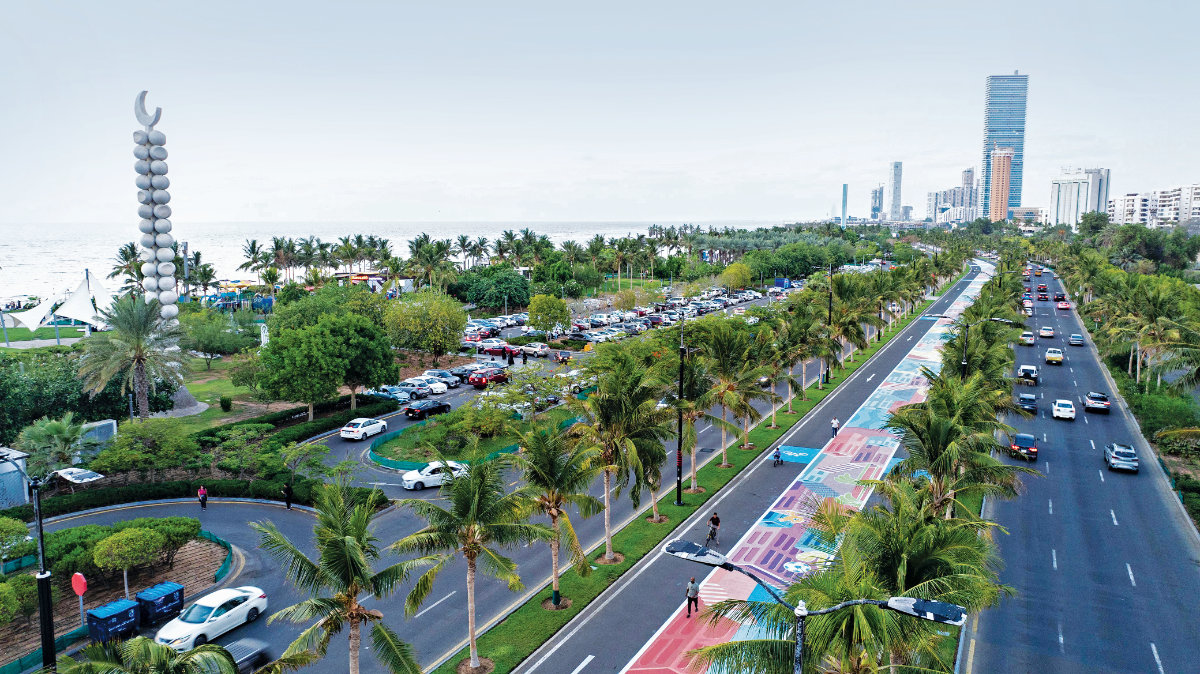- jili ph365
- 2025-01-13 Author: Hua Erjun Source: https://blog.drbomba.net/wp-content/plugins/twentytwentyseven/
-
Lions defeat Colts for ninth straight victoryjili ph365 。summary: jili ph365 .
Kosovo’s Prime Minister Albin Kurti said an explosion late Friday night that damaged a key water canal was a “terrorist act” and accused groups aligned with Serbia of having been behind it — an accusation Serbia called baseless. Kosovo’s interior minister, Xhelal Svecla, announced the arrest of eight people linked to the explosion and said police seized a large cache of weapons and military equipment during the operation. He said the searches were carried out at 10 locations in northern Kosovo. The searches “to the confiscation of arms, explosives, hundreds of uniforms, and other military gear, which will serve as evidence in criminal proceedings,” he said during a press conference on Saturday evening. The blast in the Zubin Potok municipality of northern Kosovo damaged a canal that carries drinking water to several regions as well as cooling water for the country’s thermal power plants. The incident raised concerns about potential disruptions to essential services, including water and electricity. Local media showed photographs of water leaking from the reinforced canal. “The attack was carried out by professionals, and we believe it comes from groups orchestrated by and directed by Serbia,” Kurti said in the Kosovan capital of Pristina at an emergency press conference after midnight. Kurti said Serbian operatives have the “capacity to carry out such attacks using large quantities of explosives,” without offering specific evidence. Serbian Foreign Minister Marko Djuric fired back against “premature accusations” in a lengthy post on X, saying the blast may have been “a deliberate diversion” orchestrated by Kosovo’s government. He offered financial and technical support to help repair the canal, which is vital to Serb-populated municipalities of Kosovo. Aleksandr Vucic, Serbia’s president, said in Belgrade on Saturday that his country had nothing to do with the incident “and Pristina knows that.” Kosovo’s National Security Council convened an emergency meeting to approve additional security measures for critical infrastructure. Jeff Hovenier, U.S. ambassador to the Balkan nation, and other diplomatic missions, including France and the EU, also condemned what they called an attack. The U.S. is closely monitoring the situation and supports a full investigation, Hovenier said. The incident follows a series of grenade attacks in northern Kosovo targeting police stations and government buildings. Serbian List, the political party in Kosovo that represents the minority Serb population and is backed by Belgrade, also condemned the explosion, calling it a threat to the water supply of Serb residents in northern Kosovo. ©2024 Bloomberg L.P. Visit bloomberg.com. Distributed by Tribune Content Agency, LLC.
Chinese electronics maker Xiaomi said on Monday it expects to launch its first SUV, the YU7, next June or July as it ventures deeper into China's competitive car market. The company announced the launch on China's social media platform Weibo alongside an image of the YU7 parked beside its first electric vehicle, the SU7 sedan, with the two cars sporting similar designs. Information posted by China's ministry of industry and information technology showed the YU7 is a pure electric SUV boasting a top speed of 253km/h. The car will be powered by batteries produced by a unit of China's CATL. Xiaomi CEO Lei Jun said on his Weibo account the key specifications for the YU7 were disclosed early to allow “more comprehensive and extensive large-scale testing” over an extended period. Last month, Xiaomi raised its EV delivery target for the third time to 130,000 units this year to meet surging demand. The smartphone and electronic device maker entered China's crowded EV market in March with the launch of the SU7 series, a Porsche lookalike with a starting price of less than $30,000 (about R533,416). In October, the company unveiled a luxury variant of the SU7, priced to rival Tesla's Model S Plaid, while touting its performance with a record lap time at Germany's gruelling Nurburgring track. Xiaomi reported a 30.5% jump in its third-quarter revenue this year, surpassing analysts' estimate. China's car sales grew at its fastest pace since January last month, boosted by government-subsidised car trade-ins.Mr Trump made the announcement in a Truth Social post, calling Charles Kushner “a tremendous business leader, philanthropist, & dealmaker”. Mr Kushner is the founder of Kushner Companies, a real estate firm. Jared Kushner is a former senior Trump adviser who is married to Trump’s eldest daughter, Ivanka. The elder Mr Kushner was pardoned by Trump in December 2020 after pleading guilty years earlier to tax evasion and making illegal campaign donations. Prosecutors alleged that after Charles Kushner discovered his brother-in-law was co-operating with federal authorities in an investigation, he hatched a scheme for revenge and intimidation. Mr Kushner hired a prostitute to lure his brother-in-law, then arranged to have the encounter in a New Jersey motel room recorded with a hidden camera and the recording sent to his own sister, the man’s wife, prosecutors said. Mr Kushner eventually pleaded guilty to 18 counts including tax evasion and witness tampering. He was sentenced in 2005 to two years in prison – the most he could receive under a plea deal, but less than what Chris Christie, the US attorney for New Jersey at the time and later governor and Republican presidential candidate, had sought. Mr Christie has blamed Jared Kushner for his firing from Mr Trump’s transition team in 2016, and has called Charles Kushner’s offences “one of the most loathsome, disgusting crimes that I prosecuted when I was US attorney”. Mr Trump and the elder Mr Kushner knew each other from real estate circles and their children were married in 2009.
PC Gamer's biggest hardware stories of 2024: Elon Musk, the rise and rise of AI, brilliant builds, the humbling of big tech giants, orb pondering aplenty, and much moreAfter a thrilling double-overtime win over Fresno State, California Baptist makes the nearly 2,500-mile trip to Orlando to face Central Florida on Sunday. The Lancers (5-3) capped their time at the Acrisure Holiday Invitational in Palm Springs, Calif., with an 86-81 victory over the Bulldogs on Wednesday. That followed a last-second, 79-77 loss to SMU the day before. Dominique Daniels Jr. played 45 minutes against Fresno State and led California Baptist with 29 points. He paces the Lancers with 20.3 points per game, while Kendal Coleman averages 15.1 points and is shooting 59.7 percent form the floor. However, coach Rick Croy's team has struggled from 3-point range, shooting just 30.7 percent entering its first true road game this season. UCF (5-2) is coming off of an 84-76 win over Milwaukee last Wednesday despite being outrebounded 41-31. The Knights were helped by the heroics of senior guard Darius Johnson, who had 28 points as he shot a career-best 8-for-10 from beyond the arc. "Darius was terrific," UCF coach Johnny Dawkins said. "He's so comfortable in his leadership role now, he's leading our team and running the show, and our new players are becoming more comfortable playing with him. He's been a rock for us this season, and you love to see it out of a senior point guard." "I had an extraordinary night shooting the ball from three," Johnson said. "I rarely think that would happen again, but it's great. I know my teammates are going to have nights like that as well." Johnson is among the nation's leaders in minutes per game (36.6) and is shooting a team-high 50 percent from 3-point range (23 of 46). He, along with his fellow guard Jordan Ivy-Curry, are each averaging 16.9 points to lead UCF. The Knights opened the season with an impressive win over Texas A&M, now No. 20 in the AP poll, but lost both games at last weekend's Greenbrier Tip-Off, including a triple-overtime defeat against LSU on Sunday. UCF has not reached the NCAA Tournament since 2018-19. This will be the first meeting between the Knights and the Lancers, who will each have time off afterwards. UCF won't play until Dec. 8 against Tarleton State, while California Baptist is idle until its Dec. 11 game at San Diego State. --Field Level Media
WASHINGTON (AP) — President-elect Donald Trump has promised to as soon as he gets into office to make good on campaign promises aiming and redefining what it means to be American. But any efforts to halt the policy would face steep legal hurdles. Birthright citizenship means anyone born in the United States automatically becomes an American citizen. It’s been in place for decades and applies to children born to someone in the country illegally or in the U.S. on a tourist or student visa who plans to return to their home country. It’s not the practice of every country, and Trump and his supporters have argued that the system is being abused and that there should be tougher standards for becoming an American citizen. But others say this is a right enshrined in the 14th Amendment to the Constitution, it would be extremely difficult to overturn and even if it’s possible, it’s a bad idea. Here’s a look at birthright citizenship, what Trump has said about it and the prospects for ending it: During an interview Sunday on Trump said he “absolutely” planned to halt birthright citizenship once in office. “We’re going to end that because it’s ridiculous,” he said. Trump and other opponents of birthright citizenship have argued that it creates an incentive for people to come to the U.S. illegally or take part in pregnant women enter the U.S. specifically to give birth so their children can have citizenship before returning to their home countries. “Simply crossing the border and having a child should not entitle anyone to citizenship,” said Eric Ruark, director of research for NumbersUSA, which argues for reducing immigration. The organization supports changes that would require at least one parent to be a permanent legal resident or a U.S. citizen for their children to automatically get citizenship. Others have argued that ending birthright citizenship would profoundly damage the country. “One of our big benefits is that people born here are citizens, are not an illegal underclass. There’s better assimilation and integration of immigrants and their children because of birthright citizenship,” said Alex Nowrasteh, vice president for economic and social policy studies at the pro-immigration Cato Institute. In 2019, the Migration Policy Institute estimated that 5.5 million children under age 18 lived with at least one parent in the country illegally in 2019, representing 7% of the U.S. child population. The vast majority of those children were U.S. citizens. The nonpartisan think tank said during Trump’s campaign for president in 2015 that the number of people in the country illegally would “balloon” if birthright citizenship were repealed, creating “a self-perpetuating class that would be excluded from social membership for generations.” In the aftermath of the Civil War, Congress ratified the 14th Amendment in July 1868. That amendment assured citizenship for all, including Black people. “All persons born or naturalized in the United States and subject to the jurisdiction thereof, are citizens of the United States and of the State wherein they reside,” the 14th Amendment says. “No State shall make or enforce any law which shall abridge the privileges or immunities of citizens of the United States.” But the 14th Amendment didn’t always translate to everyone being afforded birthright citizenship. For example, it wasn’t until 1924 that Congress finally granted citizenship to all Native Americans born in the U.S. A key case in the history of birthright citizenship came in 1898, when the U.S. Supreme Court ruled that Wong Kim Ark, born in San Francisco to Chinese immigrants, was a U.S. citizen because he was born in the states. The federal government had tried to deny him reentry into the county after a trip abroad on grounds he wasn’t a citizen under the Chinese Exclusion Act. But some have argued that the 1898 case clearly applied to children born of parents who are both legal immigrants to America but that it’s less clear whether it applies to children born to parents without legal status or, for example, who come for a short-term like a tourist visa. “That is the leading case on this. In fact, it’s the only case on this,” said Andrew Arthur, a fellow at the Center for Immigration Studies, which supports immigration restrictions. “It’s a lot more of an open legal question than most people think.” Some proponents of immigration restrictions have argued the words “subject to the jurisdiction thereof” in the 14th Amendment allows the U.S. to deny citizenship to babies born to those in the country illegally. Trump himself used that language in his 2023 announcement that he would aim to end birthright citizenship if reelected. Trump wasn’t clear in his Sunday interview how he aims to end birthright citizenship. Asked how he could get around the 14th Amendment with an executive action, Trump said: “Well, we’re going to have to get it changed. We’ll maybe have to go back to the people. But we have to end it.” Pressed further on whether he’d use an executive order, Trump said “if we can, through executive action.” He gave a lot more details in a . In it, he said he would issue an executive order the first day of his presidency, making it clear that federal agencies “require that at least one parent be a U.S. citizen or lawful permanent resident for their future children to become automatic U.S. citizens.” Related Articles Trump wrote that the executive order would make clear that children of people in the U.S. illegally “should not be issued passports, Social Security numbers, or be eligible for certain taxpayer funded welfare benefits.” This would almost certainly end up in litigation. Nowrasteh from the Cato Institute said the law is clear that birthright citizenship can’t be ended by executive order but that Trump may be inclined to take a shot anyway through the courts. “I don’t take his statements very seriously. He has been saying things like this for almost a decade,” Nowrasteh said. “He didn’t do anything to further this agenda when he was president before. The law and judges are near uniformly opposed to his legal theory that the children of illegal immigrants born in the United States are not citizens.” Trump could steer Congress to pass a law to end birthright citizenship but would still face a legal challenge that it violates the Constitution.
- Previous: taya ph365 Next: ph365 casino login register
-
You will bear all civil or criminal legal responsibilities directly or indirectly caused by your actions and speech.
Message board administrators have the right to retain or delete any content in the messages under their jurisdiction.
This site reminds: Do not make personal attacks. Thank you for your cooperation.



